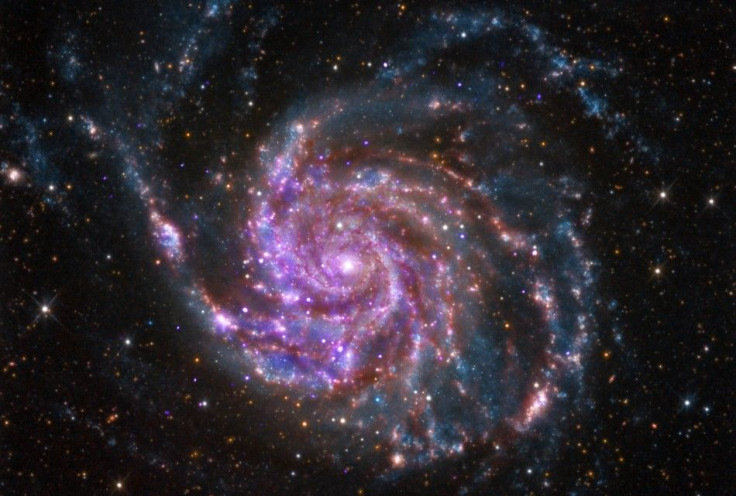Astronomers Say: Centre Of The Milky Way Galaxy Is Raspberry Flavoured

Ever wanted to take a whiff of, or a bite out of the Milky Way? Scientists have recently discovered that the centre of the galaxy has a distinct flavour and smell to it, not quite unlike an exotic, fruity cocktail. Astronomers at the Max Planck Institute for Radio Astronomy in Bonn have been studying a massive dust cloud in the heart of the Milky Way, hoping to find the existence of molecules that are the very building blocks of life. What they did find, however, has left them more curiour than the fabled cat.
A team of researchers has been on the look out for existence of amino acids in outer space, which would help support and even create life. If you have ever wondered about how one could go about creating little aliens, amino acids are the answers to all your prayers! However, in their search for amino acids, the scientists stumbled onto a substance called ethyl formate. This is the chemical compound responsible for giving raspberries their distinct taste.
Arnaud Belloche of Cornell University reportedly said, "It does happen to give raspberries their flavour, but there are many other molecules that are needed to make space raspberries." What is even more fascinating is that ethyl formate has another unique trait, it smells like rum! Imagine, years from now, stepping out to the closest space market wearing a fashionable space suit and buying a basket of rum fragrant raspberries for a snack. Doesn't it leave your mouth watering and your mind boggling?
The significance of finding amino acids in outer space is like finding the lost city of gold... with all the inhabitants still alive and kicking. The possibilities of such a discovery would be endless, which is why it has been such an arduous and unceasing endevour. Over the years, astronomers have collected thousands of signals while observing the Milky Way dust cloud, that are yet to be analysed.
Belloche also said, "so far we have identified fifty molecules in our survey, and two of those has not been seen before." However, every year, astronomers are getting closer to discovering amino acids and with that possibility lies the chance of mankind, one day having the technology to impregnate another planet with life. Why worry about aliens not existing when we make can make some of our own? Get set to live long and prosper mankind!"





















